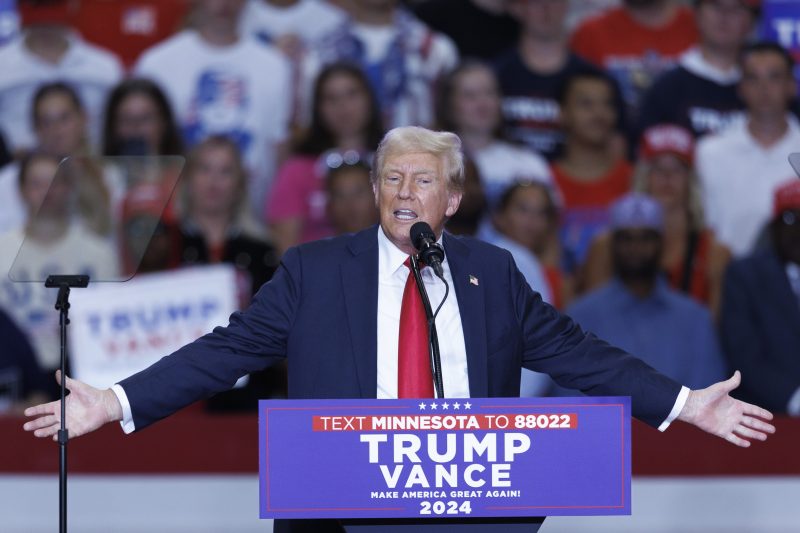In a recent statement that has sparked controversy, former President Donald Trump suggested that Vice President Kamala Harris would struggle in her interactions with world leaders based on her appearance. This remark comes amidst ongoing debates about sexism and misogyny in politics and society. The comment, made during an interview on a conservative podcast, has raised questions about the role of gender bias in shaping perceptions of leadership.
Trump’s insinuation that Harris’s appearance could hinder her ability to engage effectively with international counterparts has drawn sharp criticism from many quarters. Critics argue that such comments not only perpetuate harmful stereotypes about women but also distract from substantive discussions about policy and diplomacy. By reducing Harris to her physical attributes, Trump’s remarks reflect a troubling tendency to undermine women in positions of power based on their looks rather than their qualifications or abilities.
It is essential to recognize that judgments based on appearance are not only unfair but also detrimental to progress towards gender equality. Women in leadership roles continue to face scrutiny and prejudice that their male counterparts do not experience to the same extent. By focusing on Harris’s appearance rather than her accomplishments and capabilities, Trump’s comments contribute to a culture that reinforces gender bias and diminishes the achievements of women in positions of authority.
Furthermore, Trump’s remarks raise broader questions about the expectations placed on women in positions of power. The suggestion that Harris’s appearance could impact her interactions with world leaders implies that women must meet certain standards of beauty or conform to traditional gender norms to be considered effective leaders. This narrow view of leadership not only limits opportunities for women but also perpetuates harmful stereotypes that can have lasting implications for gender equality in politics and beyond.
In conclusion, Trump’s recent comments regarding Vice President Kamala Harris’s appearance underscore the challenges that women in leadership face in navigating gender bias and stereotypes. By reducing Harris to her looks and suggesting that her appearance could hinder her diplomatic efforts, Trump’s remarks highlight the importance of confronting and challenging perceptions of women in positions of power. Moving forward, it is crucial to continue advocating for gender equality and promoting a more inclusive and equitable society where all individuals, regardless of gender, can be evaluated based on their qualifications, skills, and contributions.
